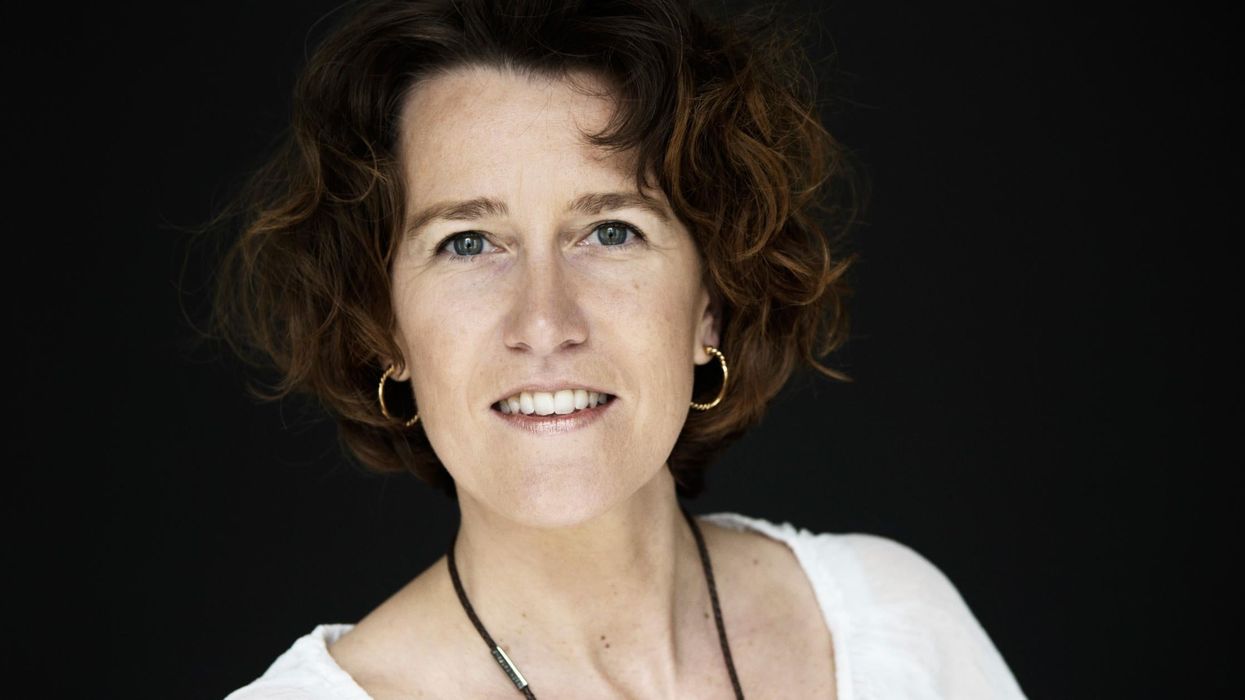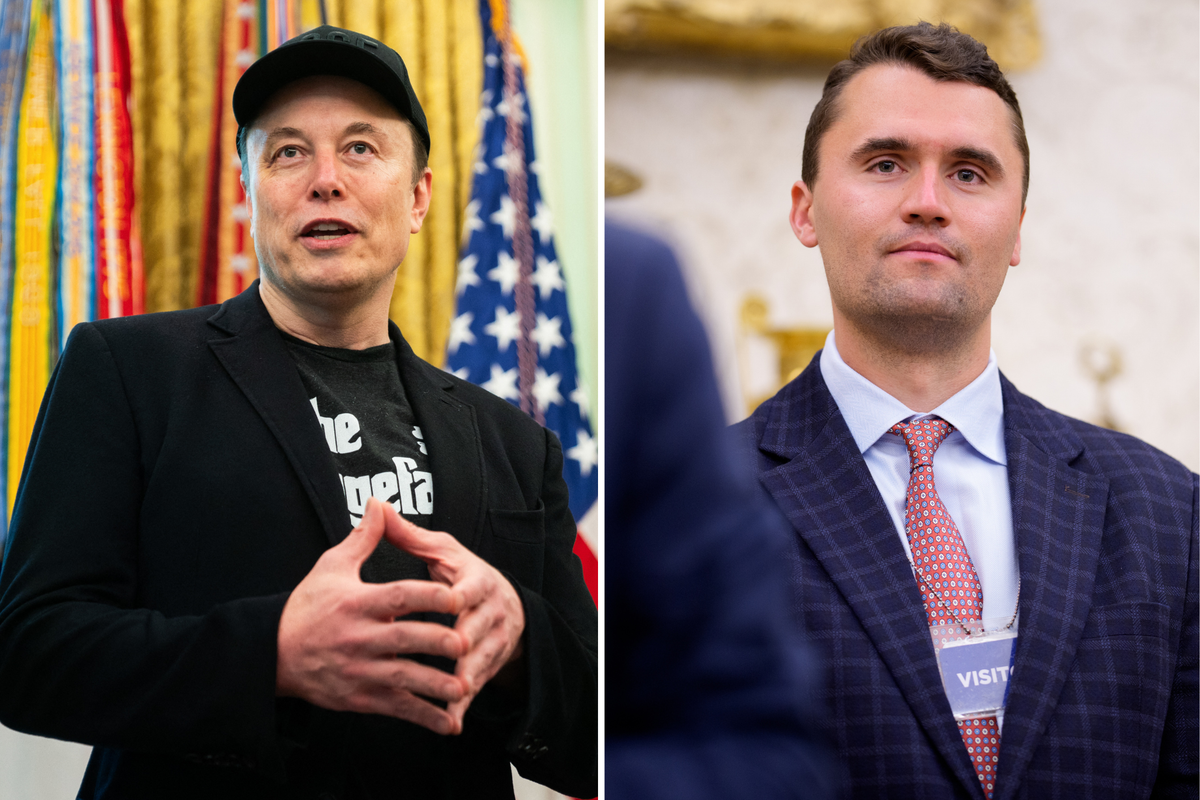News
Mimi Launder
Apr 02, 2018
Liselotte Hyveled knew more than most about what it would take to hire more people with autism spectrum diagnosis.
Her daughter was diagnosed with Asperger syndrome, a form of autism, as a teen. Too many obstacles sit between people with autism and careers where they are likely to excel, the Novo Nordisk Senior Facilitator explained to indy100.
That’s where Project Opportunity comes in. Launched in 2013 at the company where Liselotte works, Danish healthcare giant Novo Nordisk, Project Opportunity aims to hire and support people with autism in order for it to work for both parties: the employees and the employers.
Often, people with autism do not thrive in open office environments: they prefer silence, have difficulty picking up social cues and may struggle with communication. Knowing her daughter's uphill battle to get a job, Liselotte wanted to help tackle the misconceptions about people with autism and the unemployment gap. She told indy100:
We were interested in making a difference and social responsibility. We wanted to benefit society.
Project Opportunity is making it work: already, seven people have been hired through the scheme and four more people are set to join in 2018. “They have grown so much. they just shine,” said Liselotte. "They’re very happy.” She added:
They are enjoying contributing to society, having a job... Some of them come from a place where they have low self-esteem. Now, they're much more confident and they know that they can make a difference to a lot of people.
“A different way of thinking brings innovation into every day life,” she continued. “It’s a win-win situation.”
Hiring people with autism makes financial and business sense.
Lasse Kjems, who now works as an Administrative Assistant at Novo Nordisk, was hired in the pilot project that led Project Opportunity. Throughout school and university, Lasse isolated himself from his peer group: he did not join in in social activities and felt different to everyone else.
With a master's degree in biology, Lasse was overqualified for the wage subsidy job he landed with help from the job centre. Eventually, at the age of 28, Lasse was diagnosed with Asperger's syndrome.
It was only upon hearing about Project Opportunity - and taking a work ability assessment - that Lasse found a job that matched his talents, a turn in fortunes that Lasse is extremely grateful for. He told indy100:
At the time, I did not know what possibilities that would bring but now I know that a work ability assessment is extremely important for people like me.
Today, around five years on from being hired by Kenneth Strømdahl at Novo Nordisk, Lasse handles daily Quality Control checks of raw data and test reports - and he is thriving.
People with autism often have unique qualities that can make for excellent employees. Traits such as honesty, focused effort and logical thinking lend them to repetitive tasks that others might find boring. But it is also important not to lump all people with autism into one category. “They have different degrees of education, different ways of seeing the world and different situations,” said Liselotte.
Kenneth, who hired Lasse, said it had been far from an obligation for the company, where much of the work can involve long-winded, repetitive tasks such as reviewing datasets and test results. This demands a rigid focus on detail.
Lots of people would find this work boring and therefore actually have a tendency to make errors.
But, for many of the people hired through Project Opportunity, working like this is their place to shine. Kenneth, who is Senior Vice President at Novo Nordisk, explained that these advantages demand time and patience from employers.
If you're prepared, and willing to walk the extra mile the first few months, then you also get the benefits. They have lots of strengths, that's for sure, but they also have weaknesses. You need to pay attention to the weaknesses, otherwise it doesn't fly in the long-run.
Project Opportunity meant the company had to adapt: the direct manager was trained about the specific needs of the person with autism, other employees were briefed and informed, and a mentor was put in place to help the person with autism.
It's very much about awareness on what this person might prefer and might nor prefer, and why this person doesn't find this joke funny, for instance.
The idea didn’t float well at first: people peppered management with questions, raising sceptical eyebrows at how exactly someone with autism might fit in. Yet conversation and openness kept the project alive. Kenneth thinks that many of these misconceptions arise from the impressions given by newspapers and television.
Once the project began, and employees interacted more with people with autism and watched how they worked, assumptions were shed and minds changed. “I think people were surprised to see that talent they actually have,” said Kenneth. He too has grown since the project began:
I think today I'm much more aware about people with different handicaps and the benefits they bring.
Liselotte is a great believer in social responsibility, which was a strong driver in her decision to launch such an ambitious project. Yet, if Project Opportunity has taught her company anything, it's that workplaces stand to benefit greatly from more diverse hiring practices that include not just gender, sexuality and race, but neuro-diversity too.
Larger companies in particular have the capacity, resources and roles available to support autistic people - and Novo Nordisk is leading the way. It is not as simple as hiring people with autism and giving them in a quiet room to work in, but a "long-haul" process, said Liselotte, who added: “I wish that people could accept more that everyone can actually contribute to something."
Employers shouldn't be afraid to do it, but of course there are some things that you need to think about. It's important going from awareness to acceptance to appreciation.
You can find out more information and advice on neuro-diversity in the workplace if you are an adult with autism here and if you are an employer here.
Top 100
The Conversation (0)














